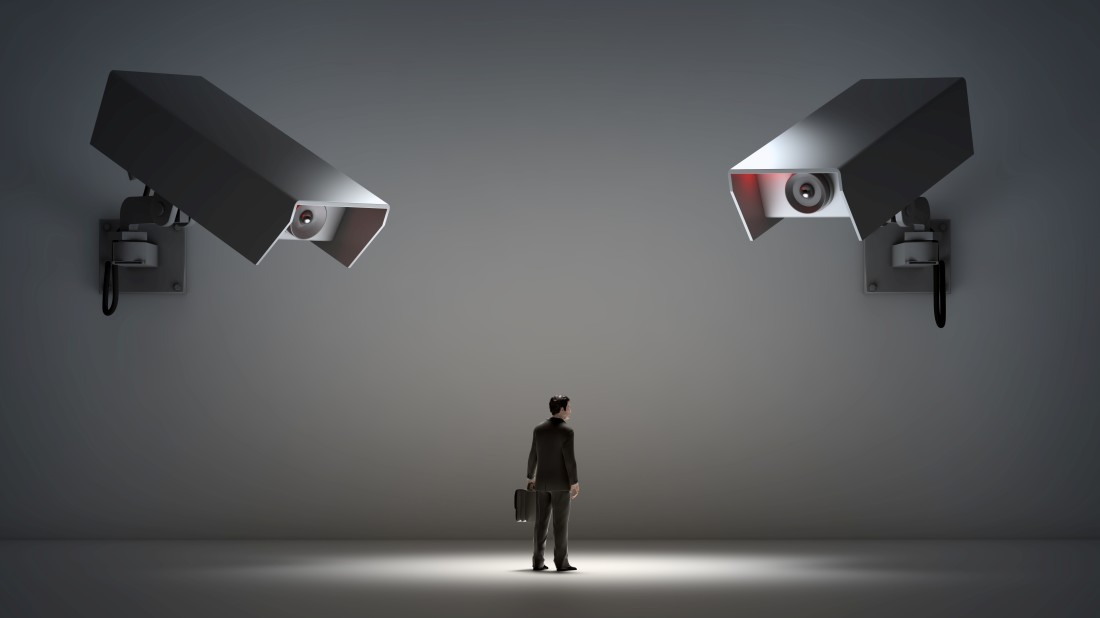Smile, You’re On Camera: Best Practices for Workplace Video Surveillance in Michigan
 Preventing theft, avoiding frivolous lawsuits, increasing productivity, and improving workplace safety: these are all important objectives that employers in Michigan hope to achieve through monitoring their workers and work environments often with video surveillance. While video surveillance can be an important asset for an employer, it can also lead to liability if your surveillance program runs afoul of the law.
Preventing theft, avoiding frivolous lawsuits, increasing productivity, and improving workplace safety: these are all important objectives that employers in Michigan hope to achieve through monitoring their workers and work environments often with video surveillance. While video surveillance can be an important asset for an employer, it can also lead to liability if your surveillance program runs afoul of the law.
Video Surveillance of Employees in Michigan
Using video to record workers and workplaces is generally allowed in Michigan, but there are some important state and federal laws that employers must be aware of when using cameras. Additionally, agreements with employees, such as union contracts or employment agreements, can limit an employer’s ability to use video surveillance.
As an initial matter, when conducting any sort of employee monitoring, an employer should consider whether such monitoring might violate an employee’s reasonable expectation of privacy. For example, installing video cameras in a bathroom used by employees would almost certainly be considered inappropriate monitoring. In addition, an employer should conduct video monitoring only if it serves a legitimate business interest. While video surveillance is generally permitted, it should serve a professional—not personal—purpose.
There are certain instances when employee monitoring through video is specifically prohibited. For example, video surveillance that also records audio may implicate Michigan’s prohibition on eavesdropping, which could lead to civil and criminal penalties for the employer. Michigan law specifically prohibits the willful use of a device to eavesdrop on a conversation without the prior consent of all parties. See MCL §750.539c. Notably, Michigan’s Court of Appeals, in applying rules of statutory construction, held that, in some circumstances, a participant in a conversation cannot “eavesdrop” in their own conversation, thereby somewhat limiting the scope of this statute. Sullivan v. Gray, 342 N.W. 2d 58, 60-61 (Mich. Ct. App. 1982). The Suillivan court held, however, that while a participant may record their own conversation, they cannot appoint another to do so without the consent of all parties. Id. at 10-11.
Employers with unionized workforces must also pay special attention to where and when they are recording workers. The National Labor Relations Act prohibits an employer’s use of video surveillance to monitor employees’ union activities, including union meetings and conversations involving union matters. Generally, employers must bargain with union employees before using video surveillance. However, the Michigan Employment Relations Commission, has slightly departed from the National Labor Relations Board (NLRB) and held that public sector unionized employers may be able to use video surveillance in certain areas of their operations, under certain circumstances, without negotiating with the union. Finally, employers may not use video monitoring in a manner meant to intimidate current or prospective union members.
Best Practices for Using Video Surveillance in the Workplace
Since it’s important not to violate an employee’s reasonable expectation of privacy through the use of video surveillance, it’s imperative that employers make employees aware of the monitoring. Often times, an employer will spell out their surveillance policies in an employee handbook, along with explanations as to other forms of electronic surveillance, such as phone calls, email, and Internet browsing activity. Employers should require employees to acknowledge in writing their understanding of such policies and practices.
Employers should also take steps to ensure the security of their surveillance systems. In this age of omnipresent risk of cyber-attacks, and cloud-based video storage, a surveillance system that lacks solid security measures is vulnerable to hackers. Moreover, if a security system is connected to your main technology network and infrastructure, as opposed to being hosted on a separate system, a hacker who gains access to your surveillance system can gain access to your entire network. At the minimum, make sure you’re using strong password protection as a safeguard. Consult with a qualified IT professional to help set up and maintain your systems.
Conclusion
Many employers in Michigan have legitimate business reasons to conduct video surveillance in their workplaces. However, their use of video monitoring must be balanced against the reasonable expectations of privacy of their employees, and be done in accordance with state and federal laws. One of the most important steps that an employer can take to avoid liability is to consult with experienced legal counsel who can assess whether the employer’s use of video monitoring is lawful, recommend changes, and help to draft an electronic surveillance policy that puts employees on notice that their activities are being recorded.
If you are an employer and have questions on how your employee handbook and workplace policies should address these issues along with other topics, contact Cliff Hammond at (248) 538-6324. For questions regarding how this article applies to corporate business & employment strategies, contact Rob Hamor at (248) 785-4737.
Categories: Cybersecurity, Employee Handbook, Employment, Labor Relations, Privacy, Technology
Categories
- Department of Labor
- Audits
- Technology
- Tax
- Employment Tax & Withholding
- First Amendment
- Affordable Care Act
- Employee Handbook
- Liability
- Labor Relations
- Fashion
- Union
- News & Events
- Health Care Reform
- OSHA and MIOSHA
- Privacy
- Trade Secrets
- U.S. Supreme Court
- Employment
- National Labor Relations Board
- Criminal
- Alerts and Updates
- Overtime
- Harassment
- Wage and Hour
- Regulations
- Did you Know?
- Cybersecurity
- Compliance
- Employee Benefits
- Health Insurance Exchange
- News
- Lawsuit
- Safety
- Pension
- Contracts
- Legislative Updates





 Share
Share